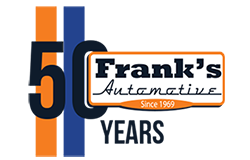-
Why Should You Have A Brake Fluid Service?
We are often concerned with brake pad wear and overlook the condition of brake fluid. Brake fluid is a vital component of our brake system. It is responsible for transferring motion from our foot, through the pedal, and finally stop the wheels. Our brake systems are hydraulic and fluid is necessary to transfer that force from your foot to the wheels.
Why brake fluid and not some other fluid like water?
Brakes stop our cars using friction. A byproduct of friction is heat, and that heat exceeds 212° F, the boiling point of water. When a liquid boils, it changes from a liquid to a gas. Liquid is not compressible, that is why we use it in hydraulic systems. When you introduce a gas/air in a hydraulic system that system can no longer force that fluid in a singular direction with any efficiency. If you have had the unfortunate pleasure of driving a car with failing brakes, you may have experienced the pedal sinking to the floor or feeling spongy. That spongy feel is the air in the system being compressed. Brake fluid was created to raise that boiling point in excess of 440° F, not allowing the introduction of air into the system. Brake fluid also prevents corrosion in the brake system. It prevents electrolysis from corroding and etching the metals in the system. The damage created by electrolysis can ruin seals and damage components like,the master cylinders, brake calipers, hoses, anti lock brake pumps, and valves.
How does water get into brake fluid?
Brake fluid is hygroscopic, it absorbs water from the atmosphere and through pores in the rubber lines of the system. Wet and humid climates speed the process up. We test brake fluid using an electronic tester. It tests for voltage. If it tests 0.25 volts or above your brake fluid has higher than 2% water content. Anything 2% or above is excessive and it is recommended that you perform a brake fluid service.
How is a brake fluid service completed?
Different manufactures have different methods, but we will give you an overview of how it is done. The three things we are trying to eliminate are water, contaminants and air. We start off by drawing out the old fluid in the brake fluid reservoir. We pour fresh fluid into the reservoir and attach a pressure bleeder to the system. The pressure bleeder pressurizes brake fluid allowing it to be moved from the reservoir to each wheel. From there we go to each wheel and open up bleeder screws allowing the pressurized fluid to escape. We start with the wheel furthest from the reservoir and work are way to the closest. We allow the old fluid to flush out of the system, along with removing any trapped air bubbles.
How often and when should I have a brake fluid service?
Most manufacturers recommend servicing a brake system every 2 years. We check your brake fluid every time your vehicle comes in for a 45 Point Courtesy Inspection. It is one of the things we check for you at no charge. We go by what our testers tell us. If it tests below 2% and clear, there is no need to perform a service.
So remember, brake pads and rotors are an important part of the braking system. Brake fluid is the vital component to ensures your car will stop. Make sure your brake fluid is free of water, contaminants, and air bubbles, so you can stop you vehicle with confidence.
-
Three Common Symptoms of a Problem with Your Braking System
When your car is in need of brake repair , it can be very dangerous to neglect scheduling a service appointment for your vehicle. As your car’s sole source of stopping power, your brakes allow you to keep your car under control as you drive down the road. To avoid a dangerous situation behind the wheel, you will want to schedule brake repairs in Sacramento as soon as you notice the signs of a problem. To help you know when it is time to schedule brake repair, here is an overview of three symptoms that something could be going wrong with your car’s braking system.
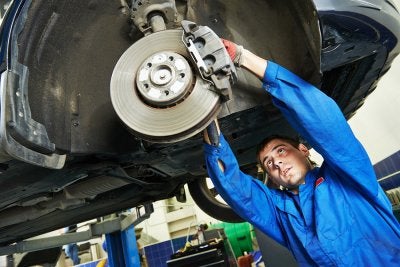
Brakes are the sole source of stopping power for your vehicle, so it is important when your vehicle is in need of brake repair not to neglect scheduling an appointment in Sacramento as soon as possible. To help you know when it is time to schedule brake repair, here is an overview of three symptoms that something could be is going wrong with your car’s braking system.
Strange Sounds
To assess the safety and condition of your car’s brakes, you’ll want to use your ears. Many times, your brakes will start to make strange sounds when they are starting to develop mechanical troubles. Squealing noises, for instance, can indicate worn out brake pads. More serious noises include grinding or grating sounds, which may be signs of worn out brake pads & rotor/discs.
Soft Brake Pedal
As you get to know the ins and outs of your car’s typical performance dynamics, you will grow accustomed to its typical brake feel. In the event that your vehicle is experiencing braking issues, you may start to feel that your brake pedal is excessively soft or mushy. A soft brake pedal can be caused by low brake fluid, or brake lines that have started to leak. To avoid issues in your master cylinder as well as potential dangers on the road, you will want to have your soft brake pedal fixed as soon as you can.
Shaking Sensations
Over time, your brakes may start to create unusual sensations when you hit the brake pedal. If your brake rotors have gotten warped due to damage or neglect, they may start to shake and shudder whenever you apply pressure to the brakes. To address any concerns that you may have about your car’s braking system, be sure to make an appointment with a brake repair specialist in your area.
-
A Look at the Components of Brakes
Learning about your car’s internal systems can help you determine when it is time to visit the auto repair shop. Brakes are among the most critical safety systems in any vehicle. When your brakes and rotors start to wear out, your car’s stopping ability could be seriously compromised. By setting up brake service in Sacramento when you start to notice a problem with your braking system, you can prevent further damage to your vehicle. If you are interested in gathering information about how brakes work, read on to learn more about the different components of your car’s brakes.
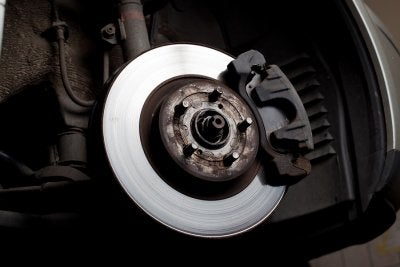
Master Cylinder
The master cylinder is responsible for powering the entire braking system. When the driver places pressure on the brake pedal, this will signal the master cylinder to send hydraulic fluid through the brake lines. The hydraulic power will activate the brakes pistons and cause the vehicle to slow or stop.
Brake Lines
A car’s brake lines are designed to transport brake fluid throughout the braking system. The master cylinder is connected to the other parts of the braking system through a series of brake lines. If the brake lines become damaged, a car may start to leak brake fluid.
Brake Caliper
The brake caliper is designed to house all of the different mechanical components of a braking system. Inside the brake caliper, you will find the brake piston, brake pads, and brake rotors. If a car is experiencing braking problems, the technician may need to disassemble the brake caliper in order to repair the issue.
Brake Pads
A brake pad replacement is one of the most common brake repair services that any car owner will need to schedule. The brake pads are designed to grip the brake rotors, causing the vehicle to slow down or stop. Since the brake pads receive a high degree of friction, they will wear down more quickly than any other brake component.
Brake Rotors
The brake rotors are directly connected to the wheels of a car. As pressure is placed on the brake pads, the brake rotors will stop the rotation of the wheels.
-
How Long Do Brake Pads Last?
When you bring your vehicle in for brake repair, your mechanic may recommend that you replace your brake pads. Since your brake pads absorb the majority of the friction that is created when you hit the brakes, they will need to be replaced at regular intervals. While there is no hard and fast number for the lifespan of a brake pad, you can generally expect your pads to last for around 30,000 to 70,000 miles. A shop that offers brake pad replacement near Sacramento can help you decide when it is time to schedule brake services for your car.
There are several signs that your brake pads have reached the end of their lifespan. When it is time to replace your brake pads , you may start to hear a loud squealing noise coming from your brakes. This sound is an indication that your brake pads have worn down too far, and are in need of immediate replacement.
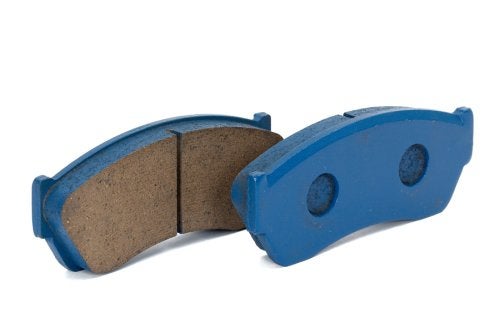
-
Why Your Brakes Are Failing Quickly
There are not many riskier maneuvers you can engage in than driving a car with faulty brakes, which is why brake repair in Sacramento is so crucial to your safety. Additionally, it is essential to the safety of other drivers and pedestrians who might cross your path. If your brakes are not in the shape they should be and require brake service, consider the way you are using them. Some people overuse their brakes, which can wear them out quickly and lead to the need for brake repair; make sure you are not doing this yourself. You might also experience brake problems because your car is carrying too much weight. Read on to learn why your brakes are failing quickly.
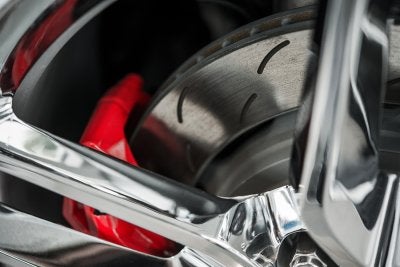
You’re Using Them Improperly
Your brakes might fail for a number of different reasons, but it often occurs when drivers don’t use them the right way. Some drivers overuse their brake pedals; this tends to be most common in those who use both feet, as pushing your gas and brake pedals at the same time can wear out your brakes quickly. If you often find yourself squealing on the brakes at high speeds, you can count on them failing sooner rather than later.
You’re Braking Because Others Are
It’s easy to follow the flow of traffic, but sometimes the drivers ahead of you are making the same types of braking mistakes that you would like to avoid. There tend to be certain areas where people slow down more than is necessary; if you are cruising along and happen to be behind them, you might need to hit the brakes a little harder than you would think. It helps to keep an eye out and notice the driving habits of those around you, that way you can slow down with plenty of time to spare and keep your brakes in shape.
Your Vehicle Is Overfilled
The heavier your vehicle is, the harder your brakes must work to bring your car to a stop. If you consistently drive around with a heavy load in your vehicle, your brakes will probably wear out sooner than they should. Try to keep your car light to keep your brakes intact and avoid the need for brake repair.
RECENT POSTS
categories
- Uncategorized
- Automotive
- automotive diagnostics services
- Frank’s Automotive
- auto shop
- oil change
- Auto mechanic
- Maintenance
- maintenance schedule
- Catalytic Converter
- Engine Light
- oxygen sensor
- Transmission Problems
- BMW
- Pre-Purchase
- Brakes
- Anti-Lock Brakes
- Auto Diagnostics
- Alternator Repair
- Slipping Transmission
- Engine Trouble
- Brake Sounds
- Frank’s Automotive
- Frank Lettini
Archives
2022
2020
2019
2017
2016
- December (4)
- November (5)
- October (4)
- September (4)
- August (4)
- July (4)
- June (4)
- May (4)
- April (4)
- March (4)
- February (4)
